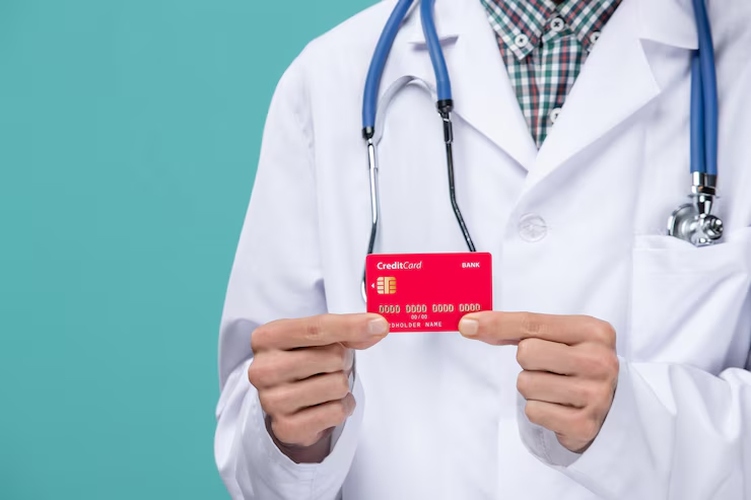In recent years, the payment of medical bills has become increasingly reliant on credit cards in the United States. As healthcare costs rise, many individuals and families find themselves turning to credit as a way to manage these significant expenses. Credit cards offer a convenient mechanism for spreading out payments over time, thus reducing the immediate financial burden.
Anúncios
More than ever, healthcare consumers in the U.S. are evaluating their payment options. With evolving healthcare needs, many are discovering that using credit cards can provide short-term relief. Evaluating the types of medical expenses that can be covered, alongside interest rates and repayment terms, is essential for informed decision-making.
The rise of credit cards in covering medical expenses

In response to escalating healthcare costs, the use of credit cards for medical bill funding has surged. This is partly because credit cards allow users to defer large expenses and pay them off incrementally. Most major healthcare costs, including surgeries, emergency services, and specialist visits, can be financed this way.
Anúncios
However, the logic behind financing medical expenses lies in the immediate necessity of care. The primary advantage of using credit lies in its ability to provide instant monetary support when faced with urgent healthcare needs. Despite this, it’s pivotal to notice this doesn’t eliminate costs; rather, it restructures them into manageable portions over time.
Challenges and risks in credit-based healthcare
While credit cards enable the distribution of healthcare costs, they also introduce risks. Patients relying heavily on credit may find themselves entangled in unforeseen debt. High-interest rates can quickly compound, turning manageable expenses into significant financial burdens. Additionally, credit misuse can adversely affect one’s financial health through debt accumulation and reduced credit scores.
These financial challenges necessitate a thorough understanding of terms and conditions before leveraging credit for medical bills. Furthermore, keeping track of all transactions and regularly reviewing credit card statements can prevent overspending and ensure expenses align with a realistic financial strategy.
Strategies to effectively use credit for healthcare payments
Informed credit card use can offer consumers substantial benefits, provided it is done responsibly. To ensure this, there are several strategies one can employ. Firstly, understanding different financing options is crucial. Some cards offer promotional 0% introductory rates, which can significantly reduce costs if the balance is paid within the designated time frame.
Secondly, exploring alternative payment options, like health savings accounts (HSAs) or setting up personal payment plans with healthcare providers, could offer more favorable terms. It’s also wise to prioritize high-interest debts for early repayment to prevent long-term financial strain. Utilizing budgeting tools and financial apps can facilitate better tracking and management of expenses.
Best practices for conscious credit use in medical expenses
To leverage credit cards wisely, adopting certain best practices is essential. A practical approach starts with setting a strict limit on credit dependency for medical expenses to avoid accumulating large debts. Secondly, users should be wary of promotional offers and thoroughly investigate any hidden fees or interest hikes.
Furthermore, maintaining a regular payment schedule is critical to avoid late fees, which exacerbate financial obligations. Regularly reviewing one’s credit report can help identify any discrepancies and ensure credit health is maintained. Lastly, engaging with financial advisors or credit counseling services can provide valuable insight into the implications of debt and create a sustainable action plan.
Conclusion: Navigating medical bill payments with credit cards
Credit cards provide a flexible solution for many Americans facing overwhelming medical bills. While they offer temporary financial relief, it’s imperative to approach this method with a well-informed strategy. The relationship between consumer and creditor requires transparency, diligence, and ongoing financial literacy.
As the landscape of healthcare financing evolves, so too should our understanding and approach to managing these costs. By employing a combination of careful financial planning and strategic use of credit, patients can successfully navigate the complex world of medical expenses without sacrificing their financial stability.
